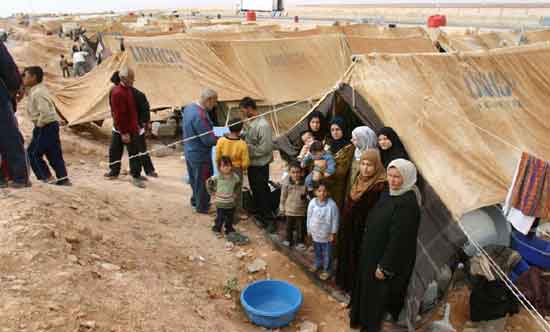Refugee rappers longing for an end to Middle East conflict
 Beirut - Songs by Iraqi and Palestinian refugee rappers are becoming one of the hottest selling items in Beirut's music stores, as war-weary Lebanese fans buy up their albums in solidarity with artists expressing their hardship in exile.
Beirut - Songs by Iraqi and Palestinian refugee rappers are becoming one of the hottest selling items in Beirut's music stores, as war-weary Lebanese fans buy up their albums in solidarity with artists expressing their hardship in exile.
A Palestinian rap group calling themselves I-Voice (Invincible Voice), and an Iraqi band known as UTN1, (Unknown To No One) are among a number of bands trying to inspire young people to keep hope despite the seemingly endless crises in the Middle East.
For the past 18 months Lebanon has been engulfed by a political crisis that almost led the country back to civil war.
Turek, 18, and Kassem, 19, members of I-Voice told Deutsche Presse-Agentur, dpa, that they started out with a song called "Inkilab" (Revolution) which dealt with the current inter- Palestinian turmoil and how it relates to Lebanon's current political scene.
Meanwhile, Nadeem and Hassan from UTN1, a group which includes Iraqi Muslims and Christians are trying to send a signal against sectarian division.
UTN1's first release was in 2000. Their famous songs "Jamila" (beautiful) and "When We Can" focus on how people should have hope and not tears during times of war.
The Iraqi and Palestinian rappers' CDs are not confined to shops in their own areas, but increasingly stores across Beirut are stocking their albums.
"The UTN1 song Jamila is very popular among the Lebanese teens, and recently the CDs for I-Voice are becoming also popular," said a music shop owner in the fashionable Hamra street.
"We faced problems and we were threatened by some Palestinian factions when we did the song Inkilab (which can also mean "coup") but we didn't care and continued to sing it," said I-Voice's Kassem.
"People in our world do not like to be criticized and hear what the street feels," he added.
Inkilab, says the band, sends a clear message to the Palestinian people to remember the Palestinian cause and mend their political divisions.
Turek refers to the deep divisions among the mainstream Fatah movement and Hamas which led to bloody clashes in the Gaza Strip earlier this year, when Hamas seized power.
"Even some religious leaders inside some camps in Lebanon called on people not to listen to our music," Kassem said adding that they want people to realize that "We are all Palestinians and we should unite to get back our country."
Inside I-Voice's makeshift studio in a narrow alley in the refugee camp of Burj al-Barajneh the group are working hard to release their second album.
"Our first album was released in August last year," Turek said.
"When you live in hardship, you tend to love hip hop music," he said.
Turek recounts the realities of Palestinian life in refugee camps in Lebanon:
"Even if you are educated, the law in Lebanon does not allow you to have a decent life, that is why most of our young men are jobless and on the streets," said Turek, who also goes by the nickname of TNT.
Kassem and Turek hope to link up one day with DAM, a rap group from the Israeli-occupied West Bank who recently featured in a documentary that was screened in Lebanon's camps called "Slingshot Hip Hop."
Nadeem, of UNT1 says that "our focus as Iraqi refugees is to make music not war,"
"Through our songs we want to send hope to our Iraqi people who are now scattered as refugees in Lebanon and elsewhere in the world," he added.
The UN Refugee Agency (UNHCR) puts the number of Iraqi refugees in Lebanon at 50,000, of whom only 8,476 are registered. Another 500 are being held in prison, UNHCR says, for violating immigration rules.
"We hope that we all one day can return to Iraq and be able to perform there, that would be heaven for us," says Nadeem. (dpa)